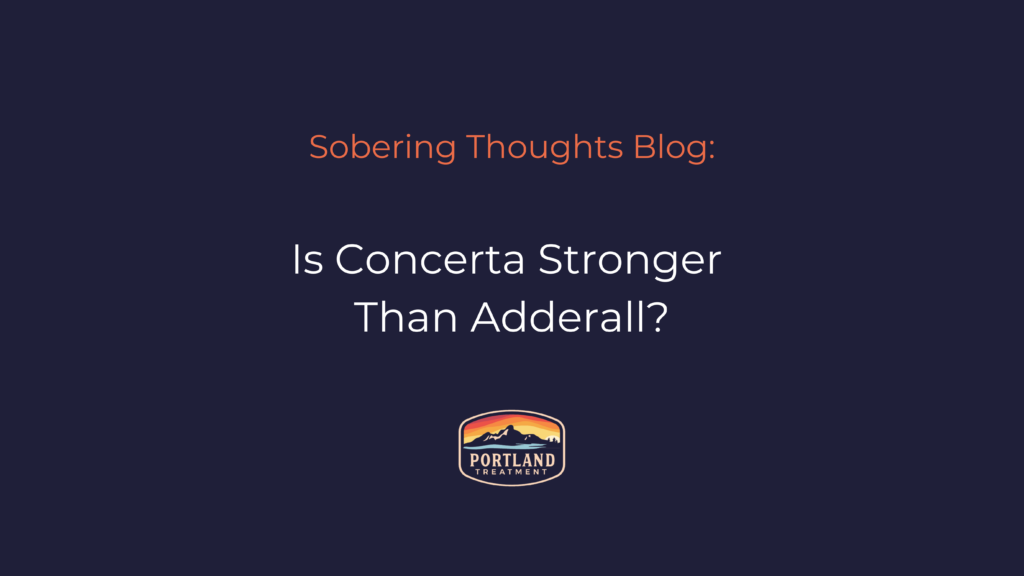In Portland, ME, the impact of morphine addiction is a pressing concern for individuals and the community alike. Understanding the potency of morphine and its connection to mental health conditions and chronic pain is crucial in recognizing and addressing the development of dependence and addiction. In this article, we will delve into the origins and …
In Portland, ME, the impact of morphine addiction is a pressing concern for individuals and the community alike. Understanding the potency of morphine and its connection to mental health conditions and chronic pain is crucial in recognizing and addressing the development of dependence and addiction.
In this article, we will delve into the origins and medical use of morphine, its working mechanism, and the signs and symptoms of addiction. We will explore the short-term and long-term effects of morphine addiction, identifying signs of overdose, and the available treatment options. Seeking help for morphine dependence, rehabilitation programs, and local resources for support and recovery will also be discussed.
As we navigate through the challenges and solutions within the Portland community, it is essential to shed light on breaking free from morphine dependency and the path to recovery.
The Impact of Morphine Addiction
Morphine addiction has a profound impact on individuals, families, and communities, leading to a critical need for effective treatment and recovery programs.
The devastating effects of morphine addiction reverberate through every aspect of a person’s life. Physically, the toll can be immense, leading to deterioration in health and increased susceptibility to chronic conditions. Psychologically, the individual may experience mood swings, cognitive impairment, and behavioral changes, impacting their relationships and overall well-being. The strain on families and communities is palpable, affecting social dynamics and economic stability. Addressing this epidemic requires a holistic approach, including comprehensive treatment and recovery programs that integrate medical, behavioral, and social support to uplift affected individuals and rebuild the fabric of society.
Understanding Morphine and its Potency
To comprehend the severity of morphine addiction, it is essential to understand the nature of morphine and its potent impact on the human body and mind.
Morphine is a powerful opioid that is derived from the opium poppy plant and is known for its remarkable pain-relieving properties. When ingested, it binds to the opioid receptors in the brain and spinal cord, altering the perception of pain and inducing a sense of relaxation and euphoria. This also leads to its potential for abuse and addiction. The prolonged use of morphine can result in physical and psychological dependence, making it challenging for individuals to discontinue its use without experiencing withdrawal symptoms. The misuse of morphine can lead to severe respiratory depression and even overdose, posing significant risks to an individual’s health and well-being.
Relationship between Mental Health Conditions and Morphine Dependency
The intricate relationship between mental health conditions and morphine dependency underscores the need for integrated treatment approaches that address both aspects comprehensively.
Research has shown that individuals with mental health conditions such as anxiety, depression, or post-traumatic stress disorder are at a higher risk of developing morphine dependency. This often stems from attempts to self-medicate and alleviate their psychological distress.
Conversely, chronic morphine use can lead to or exacerbate mental health conditions, creating a complex cycle of interrelation between the two. It’s imperative for healthcare providers to recognize and address these co-occurring issues through integrated treatment that encompasses therapy, support groups, medication management, and behavioral interventions.
Connection between Chronic Pain and Morphine Use
The link between chronic pain and morphine use presents complex challenges in addressing the underlying causes of addiction while managing pain effectively.
Chronic pain is a widespread condition that afflicts millions of individuals, often leading to debilitating discomfort and impaired functioning. Morphine, a potent opioid, is frequently prescribed to manage severe chronic pain due to its effectiveness in alleviating distress. The therapeutic benefits of morphine must be balanced against the significant potential for addiction and abuse. This dilemma underscores the critical need for comprehensive, multidisciplinary approaches that prioritize patient well-being while addressing the complex interplay between chronic pain, opioid use, and addiction.
Origins and Medical Use of Morphine
Understanding the origins and medical use of morphine provides crucial insights into its historical context and the evolution of addiction treatment approaches over time.
Morphine, derived from the opium poppy, has been used for centuries as a powerful pain reliever. Its discovery is attributed to Friedrich Sertürner in the early 19th century, marking a significant advancement in medicine.
Medically, morphine is utilized in hospitals for severe pain management, particularly after surgery or for terminal illnesses. Its potent effects also led to its widespread misuse and addiction, prompting the need for effective intervention strategies.
Working Mechanism of Morphine
The intricate working mechanism of morphine within the human body underscores its powerful effects on the neurological and physiological systems, contributing to the challenges in addiction treatment.
Morphine primarily functions by binding to specific opioid receptors in the brain and spinal cord, altering the transmission of pain signals and producing feelings of euphoria and relaxation. This impact on the central nervous system extends to the modulation of respiratory and gastrointestinal functions, often leading to side effects such as constipation and respiratory depression.
Prolonged use of morphine can result in the development of tolerance and physical dependence, intensifying the complexities of addiction treatment. Understanding the intricate interplay between morphine and the human body is crucial for devising effective therapeutic interventions and addressing the multifaceted challenges associated with opioid addiction.
Development of Morphine Dependence and Addiction
The gradual development of morphine dependence and addiction sheds light on the complex progression of substance use disorders and the critical need for effective intervention and recovery measures.
The journey from initial exposure to morphine to the establishment of dependence involves a series of physiological and psychological changes. The process of addiction entails the brain’s adaptation to the presence of morphine, leading to overwhelming cravings and compulsive drug-seeking behavior. This evolution often elicits a range of behavioral, social, and cognitive implications, affecting the individual’s overall well-being.
Understanding the intricacies of these developments is crucial in formulating comprehensive approaches aimed at addressing not only the physical aspects of dependence but also the multifaceted psychological and social dimensions of addiction.
Recognizing Signs and Symptoms of Morphine Addiction
Recognizing the signs and symptoms of morphine addiction is crucial in facilitating early intervention and effective treatment for individuals struggling with substance abuse.
It is essential to understand that morphine addiction can manifest itself in various ways, such as social withdrawal, increased tolerance to the drug, and neglect of daily responsibilities. Physical indicators, including drowsiness, constricted pupils, and sudden weight loss, can also signal potential addiction. Behavioral changes like secrecy, aggression, and financial struggles may indicate a deeper issue. By being attuned to these signs, loved ones, and healthcare professionals can initiate support and tailored treatment plans, improving the chances of successful recovery.
Short-term and Long-term Effects of Morphine Addiction
The short-term and long-term effects of morphine addiction encompass a spectrum of physical, psychological, and social repercussions that necessitate comprehensive intervention and recovery strategies.
In the short term, individuals addicted to morphine may experience physical symptoms such as nausea, drowsiness, and constipation, while also facing psychological effects like mood swings, anxiety, and depression. The social impact can be significant, leading to strained relationships, isolation, and a decline in productivity.
Long-term morphine addiction can result in health complications including respiratory issues, liver damage, and increased tolerance, requiring higher doses for the same effect. The psychological toll can lead to severe mental health disorders, and the social consequences may escalate to societal alienation and financial instability.
Identifying Signs of a Morphine Overdose
Identifying the signs of a morphine overdose is critical in implementing timely and life-saving measures to mitigate the risks and ensure the well-being of individuals facing opioid crises.
Recognizing the symptoms of a morphine overdose, such as extreme drowsiness, slowed or irregular breathing, pinpoint pupils, loss of consciousness, or bluish lips and fingernails, is crucial in seeking immediate medical assistance. Timely intervention through administering naloxone, conducting resuscitation if necessary, and seeking professional medical help may greatly impact the chances of survival.
Treating Morphine Addiction
Effective treatment for morphine addiction involves comprehensive approaches that address the physical, mental, and emotional aspects of addiction, paving the way for sustainable recovery and long-term sobriety.
Approaches to treating morphine addiction may include medically assisted detoxification under professional supervision to manage withdrawal symptoms. In addition, therapy and counseling play a crucial role in addressing psychological and emotional dependencies. This integrated approach helps individuals develop coping strategies and regain control over their lives.
It’s also essential to involve family support and social reintegration to ensure a holistic recovery process. Ongoing aftercare programs and support groups can provide the necessary support for long-term sobriety and the prevention of relapse.
Options for Morphine Addiction Treatment
A range of treatment options exists for addressing morphine addiction, encompassing various therapeutic modalities, medication-assisted interventions, and comprehensive rehabilitation programs tailored to individual needs.
Therapeutic modalities for morphine addiction may include:
- Behavioral therapies, counseling, and support groups aim to address the psychological aspects of addiction and develop coping mechanisms.
- Medication-assisted interventions, such as the use of naloxone or buprenorphine, can help manage withdrawal symptoms and reduce cravings.
- Comprehensive rehabilitation programs typically involve structured support, vocational training, and ongoing care to promote long-term recovery and prevent relapse.
Availability of Insurance Coverage for Morphine Addiction Rehab
The availability of insurance coverage for morphine addiction rehab plays a pivotal role in ensuring equitable access to essential treatment and support services, fostering a pathway to sustained recovery and well-being.
These coverage options enable individuals grappling with morphine addiction to seek professional help without being financially burdened, thereby promoting greater inclusivity and support within the healthcare system.
Insurance coverage also facilitates access to comprehensive treatment programs, including detoxification, counseling, and medical supervision, which are instrumental in addressing the complex needs of individuals undergoing morphine addiction rehabilitation. It contributes to preserving the privacy and dignity of those seeking assistance, fostering an environment of respect and understanding.
By integrating insurance coverage into the realm of addiction treatment, societal barriers to recovery are gradually dismantled, creating a more supportive and accessible framework for those in need. It underscores the recognition that addiction recovery is a fundamental component of healthcare, deserving of equitable and compassionate support.
Seeking Help for Morphine Dependence
Taking the initiative to seek aid for morphine dependency is a vital stride towards regaining one’s health, and overall wellness, and maintaining long-lasting sobriety. This emphasizes the significance of proactive involvement and support.
Effectively addressing morphine dependence requires a comprehensive approach, which includes expert medical guidance, supportive therapy, and personalized treatment plans tailored to meet individual requirements. By reaching out for assistance, individuals gain access to valuable resources that empower them to conquer the challenges associated with morphine dependence.
Professional help establishes a secure environment for detoxification, effectively minimizing withdrawal symptoms and ensuring the individual’s physical and psychological well-being. Moreover, it is worth mentioning that Portland Treatment, while not offering detox services directly, can assist you in locating suitable detox options for drugs and alcohol in the warm and inviting state of Maine. We encourage you to reach out to Portland Treatment for support in this journey towards recovery.
Rehabilitation Programs for Overcoming Morphine Dependency
Rehabilitation programs play a pivotal role in giving the power to individuals to overcome morphine dependency, offering comprehensive care, therapeutic interventions, and personalized support towards sustained recovery and well-being.
These programs provide a structured environment where individuals can receive medical supervision, counseling, and access to holistic treatments tailored to their specific needs. By addressing physical, psychological, and social aspects of addiction, rehabilitation equips individuals with the skills and coping strategies necessary to maintain sobriety long-term.
The inclusion of behavioral therapy and support groups fosters a sense of community and belonging, enhancing the overall effectiveness of the treatment process.
Support and Recovery for Morphine Addiction
Robust support and recovery initiatives are essential for individuals grappling with morphine addiction, fostering a nurturing environment for sustained healing, resilience, and long-term sobriety.
These initiatives play a crucial role in providing individuals with the tools and guidance required to navigate the complexities of addiction recovery. By offering personalized treatment plans and fostering a sense of community and belonging, these programs create a supportive environment that encourages individuals to make positive changes in their lives.
They facilitate access to therapeutic interventions and mental health support, addressing the underlying factors contributing to addiction. The inclusion of holistic approaches, such as mindfulness practices and physical wellness activities, contributes to the comprehensive healing process, fostering a well-rounded recovery journey.
Breaking Free from Morphine Dependency in Portland, ME
Breaking free from morphine dependency in Portland, ME, requires a collaborative network of treatment facilities, community resources, and dedicated professionals to guide individuals towards lasting recovery and well-being.
In Portland, Maine, the concerted efforts to combat morphine dependency involve various treatment facilities offering evidence-based therapies and personalized care for individuals struggling with addiction. These facilities play a vital role in providing medical detoxification, counseling, and medication-assisted treatment to support the recovery journey.
The community resources in Portland, ME, form a crucial part of the support system, offering outreach programs, peer support groups, and educational workshops to help individuals navigate the challenges of overcoming morphine dependency. The collaborative network also includes law enforcement agencies, schools, and non-profit organizations working in synergy to raise awareness and provide access to resources.
The dedicated professionals, including addiction counselors, physicians, therapists, and social workers, play a pivotal role in delivering compassionate care, guidance, and support to individuals seeking to break free from the grips of morphine addiction. Their expertise, empathy, and commitment contribute significantly to the overall well-being and recovery of those battling morphine dependency in Portland, ME.
Challenges and Solutions within the Community
The community faces diverse challenges in addressing morphine addiction, yet collaborative solutions, support networks, and educational initiatives serve as pivotal elements in driving positive change and recovery.
In terms of morphine addiction, the community encounters hurdles such as stigma, limited access to specialized treatment, and insufficient awareness. Through collaborative solutions, various stakeholders can work together to establish comprehensive support systems and improve access to evidence-based treatment.
Support networks play a crucial role in providing individuals with the understanding and empathy they need to navigate the complex journey of recovery. Furthermore, educational initiatives play a vital part in raising awareness, fostering prevention, and promoting evidence-based interventions to address the complex challenges associated with morphine addiction.
Local Resources and Treatment Options
Local resources and treatment options in Portland, ME, play a pivotal role in providing accessible, compassionate care and tailored interventions to combat morphine addiction and uphold the well-being of the community.
These resources encompass a wide range of support including counseling, medication-assisted treatment, and community outreach programs. The community-based organizations in Portland offer a supportive environment for those seeking assistance for morphine addiction. The presence of specialized healthcare professionals and addiction treatment centers ensures that individuals receive comprehensive care that addresses their physical, mental, and emotional needs. This holistic approach plays a vital role in addressing the complexities of morphine addiction and supports long-term recovery.
Why Portland Treatment is an Excellent Choice for Addiction Treatment in Maine
At Portland Treatment, we understand the complexity of battling addiction and the importance of finding the right treatment. Our approach to addiction treatment is holistic, focusing not only on the physical aspects but also on the emotional and psychological well-being of our clients.
Our Programs and Services
Our treatment programs are comprehensive and personalized. We offer a range of services tailored to meet the unique needs of each individual. This includes:
- Partial Hospitalization Program (PHP): Ideal for those seeking intensive therapy while residing at home or in a sober living environment.
- Intensive Outpatient Program (IOP): A flexible option that allows clients to balance therapy with their daily responsibilities.
- Outpatient Treatment: A supportive bridge between intensive care and long-term recovery, offering customized support for sustainable sobriety.
Treating a Range of Conditions
We specialize in treating various substance addictions, including Adderall, Alcohol, Ativan, and others. Additionally, our expertise extends to addressing mental health issues such as anxiety disorders, depression, and PTSD, which often co-occur with substance abuse.
Commitment to Safe and Ethical Treatment
Our commitment to providing safe, ethical, and effective treatment is unwavering. At Portland Treatment, we believe in empowering our clients with the tools and support necessary for a successful recovery journey.
Contact Us
If you or a loved one is struggling with addiction, contact us today to learn more about our programs and how we can help you on the path to recovery. Portland Treatment is your partner in overcoming addiction and achieving lasting wellness.






